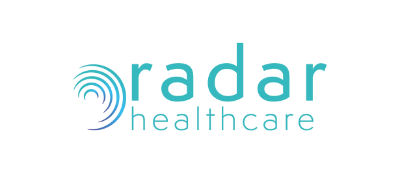Integrating care: how to develop evidence-based solutions to improve patient journeys
27 August 2020
We partnered with The King’s Fund in an online event to discuss how integrating different parts of the health and care system can positively impact patient safety. Exploring ways to improve continuity of care, we focused on the role of data in creating reliable solutions to improve people’s outcomes and experiences.
Involved in the discussion were:
- Anna Charles – Senior Policy Advisor to the CEO, The King’s Fund (chair)
- Liz Sargeant OBE – Clinical Lead of Health and Social Care Integration
- Simon Williams – Director of Adult Social Care, Local Government Association
- Paul Johnson – Co-founder and CEO of Radar Healthcare
Take a look at our insightful summary below.
Which improvement requirements were highlighted?
The aim of this online event was to look at how patients’ experience during discharge to the next stage of care could be improved. Therefore, it makes sense for us to first look at the issues being faced:
- Community capacity for services during COVID-19
- A shift to a more modern culture through technology
- Communication of front-line workers’ feedback
- Quality of data
- Deriving insights from data
- Variation between regions for care
COVID-19 and integrated care
Liz Sargeant explained how COVID-19 has put increased pressure on community nurses. There are not enough nurses to carry out all routine community services as well as COVID-19 related services. An increased workload and pandemic pressure mean that nurses may find a back log of services required in the future. Learnings from data should be utilised to its full potential to help with this expected influx of service demand and improve patient experience.
Moving away from silos
The government, NHS and Care are in their own silos and could work closer together to release their full potential, Paul points out. In the future, the health and care system should be integrated through more intelligent software in order to improve patient experience throughout their time in care. This may be a challenge, but technology facilitates the sharing of information, allowing organisations to reach a standardised way of working.
Cultural shift to digital
“When you integrate all the data you have holistic oversight” – Paul Johnson
Digital adoption can be a daunting term to some, but health and social care would benefit from a shift in culture to more modern thinking. This can be carried out through understanding the needs of carers, nurses and doctors in order to make the most out of a software system. Frontline workers will benefit from appreciating the value of a digital system and what it can bring in terms of improved patient safety.
Liz mentions that numbers and data needs to be understood to gain the full benefits. Modern software removes a need for data analysts by presenting you with insights. A healthcare system should make this easy; trends or issues from information such as events and incidents will automatically be flagged by the software. From this, the system should automatically assign actions meaning that there is always learning and improvement from the data, resulting in a higher quality of patient care. If your organisation isn’t yet benefiting from a system which offers this, then don’t worry because the technology is out there and can be customised to fit your organisation’s processes.
Improving patient experience
“We need to learn how to use data for improvement rather than for performance management” – Liz Sargeant OBE
A healthcare software system should be simple and easy to use for all, encouraging accurate information input, whilst also removing any barriers around the use of technology. After all, accurate information results in higher quality data and findings. We can learn from the outcomes of patient experience, such as the length of time to be discharged from hospital. Collating this information allows care providers to see why any possible issues happened and how to improve on them for the future.
At Radar Healthcare, we see the future of health and social care becoming more integrated, and we look forwards to improved patient journeys because of this. If you’re also excited about what you can do to improve patient experience in your care, consider a demo with Radar Healthcare. We help you move to a more modern approach through:
- Provide up-to-date visibility of information for better decision making
- Improve the flow and availability of data
- Reduce delayed transfers of care for a better patient experience
- Provide data-driven insights to understand opportunities for improvement
There’s no need to worry about hiring an analytics team as the software does it for you, letting you concentrate on what’s important; delivering high quality care.
See how we can help you improve your patient experience.







